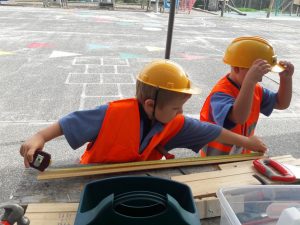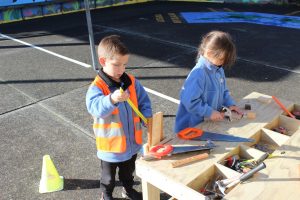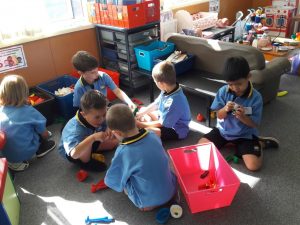Foundation Programme
Torbay School Foundation Programme Philosophy
Torbay School recognises the importance of transitioning students from their early years setting and preparing them for more formal learning. Our Foundation programme provides our students with skills and experiences necessary to begin their learning journey. We believe in working in partnership with families and pre-schools to achieve this.
The Torbay School Foundation Programme
Develops the early learning skills needed for student to be able to access formal learning related to level 1 of the New Zealand Curriculum.
Ensures a successful transition from pre-school to school.
Recognises the individual needs of the students both in knowledge and skills.
Provides meaningful and engaging experiences which allow students to develop at their own pace and level.
Use informal and formal assessments to ascertain individual student’s abilities and then plans a programme to suit the individual and class needs. These are assessments of what the student can do independently.
Develops through a language and perceptual programme these core skills which will enable students to develop Early Learning concepts.
Visual skills
Auditory skills
Fine Motor skills
Gross motor perceptual skills
Sequential skills
The Foundation programme develops students learning behaviours and attitudes including self esteem, social awareness, self-management, perseverance, participation and contributing both in the classroom and wider school life.
Student Voice
Students learn to talk about their own learning and plan their next steps. They work towards individual goals. Children learn best when they are actively involved in their own learning journey.



Wā Kitea | Discovery Time
Philosophy
To create home-school partnerships, foster independence, encourage a love for school and learning and to develop the foundation skills needed to learn in a formal classroom. Our teachers will ensure children have a happy transition from early childhood to school by using a play-based approach to teach all areas of the curriculum.
Rationale
Children transitioning into school are often confronted with formal teaching and learning approaches that contrast sharply with what they have experienced in contemporary early childhood education (ECE) settings.
We believe that to give students the best start for success they need to have a love and curiosity for learning which will be their key to lifelong learning success. To achieve this the transition into school needs to be supportive and connected to their previous experiences.
Approach
Using the Torbay School Inquiry model of PLAN-DO-SHARE to guide students investigations.
Allowing children time and space within the classroom timetable to develop a sense of belonging and relationships which will support children’s wellbeing and positive attitude towards school.
Creating a balance between the priorities of creativity, agency, belonging, relationships, and children’s interests and inquiries, and literacy, and mathematics.
Creating a balance for young children by valuing and encouraging purposeful play and authentic inquiries as part of the school day.
Recognising that young children bring interests, experiences, and expertise with them to school. They are often most competent when they are able to do some of the ‘driving’ of the programme.
Placing a greater emphasis on authentic engagement and agency, and valuing children’s prior-to-school learning and experiences will contribute to children being more settled when starting school.
Teachers Will
Engage children in meaningful and relevant learning experiences that match their particular stage of development.
Promote children’s learning through hands on, play and project based experiences to construct learning, make sense of their world and to develop literacy and numeracy.
Develop oral language skills recognising they are the basis of literacy.
Develop literacy and numeracy skills as based on the Torbay literacy and numeracy matrixes.
Prioritising children’s sense of well-being and belonging, and their relationships with each other, the teacher, the environment, and routines.
Recognise play as worthwhile, meaningful, motivating, and necessary to support children’s early learning.
Placing greater emphasis on creativity, and accepting that creative learning is often messy and can, at times, be loud.
Focus on children’s engagement rather than compliance.
Emphasising the development of key competencies as powerful influences on learning in all curriculum areas.
Retained a high focus on literacy and mathematics skills.
